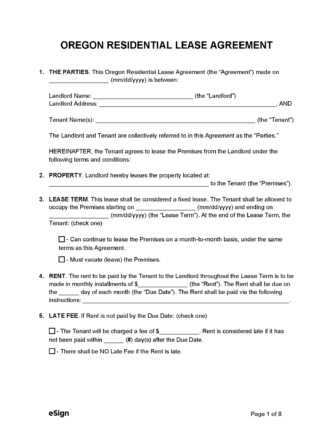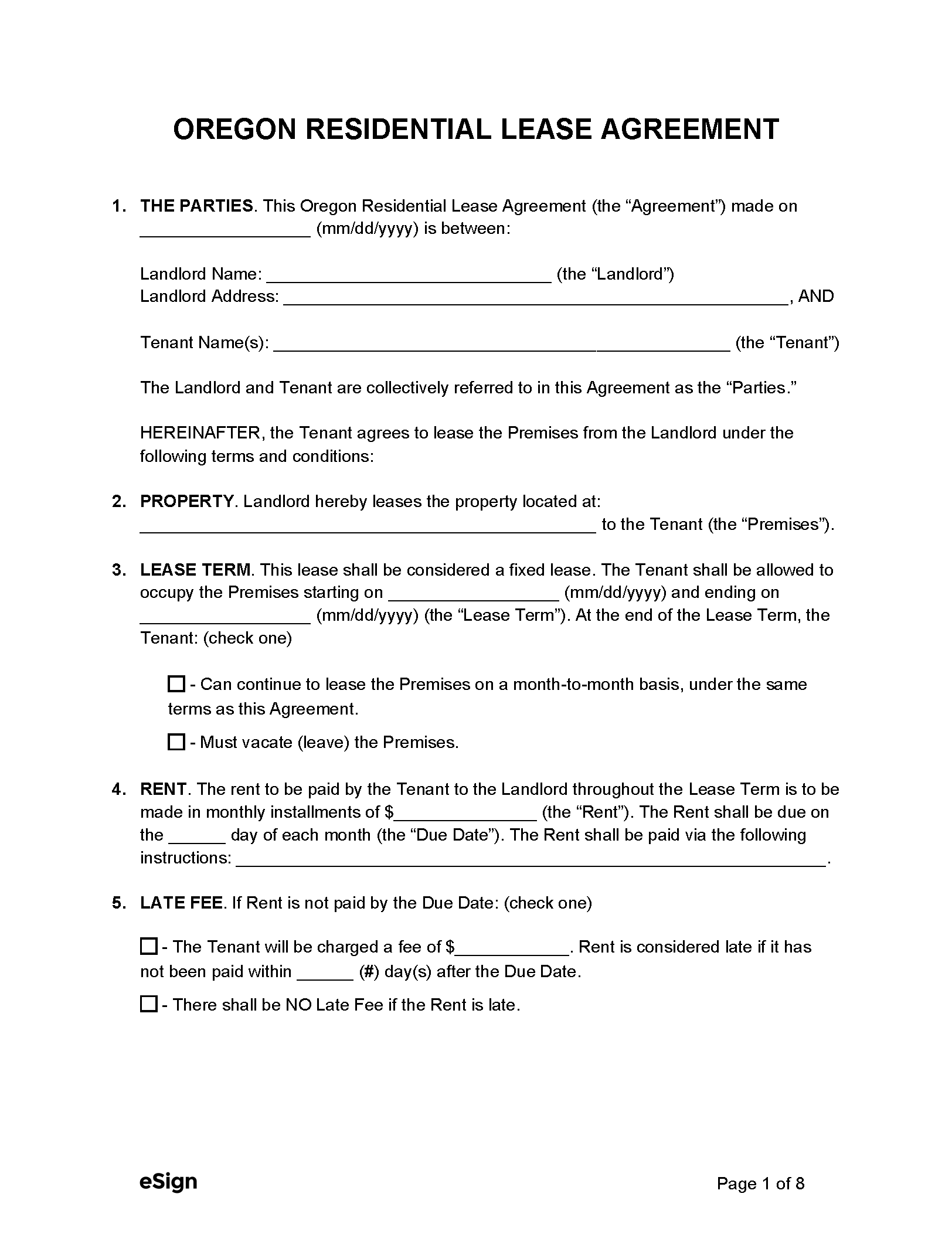Required Disclosures (9)
- 100-Year Flood Plain – The landlord must disclose in the lease agreement if the rental space is in a 100-year flood plain.[1]
- Carbon Monoxide Alarm Instructions – If there is a source of carbon monoxide on the premises, the landlord must provide a carbon monoxide alarm along with an instructional pamphlet.[2]
- Condition Report (City of Portland Only) (PDF) – The tenant and landlord should make a condition report together. Otherwise, the landlord must complete one and give it to the tenant before the lease start date. The tenant must make any amendments to the report within seven days of occupancy.[3]
- Disclosure of Legal Proceedings – Any outstanding notice of default, pending suit to foreclose, or other proceeding the property is subject to must be disclosed (if there are four or fewer units).[4]
- Identity Disclosure – Before or at the start of the lease term, the landlord must give the tenant the name and address of the property manager and the owner (or representative thereof).[5]
- Lead-Based Paint Disclosure (PDF) – Discloses the existence of lead paint on the premises. If the property was constructed before 1978, federal law requires the landlord to provide this information to tenants.[6]
- Recycling Instructions – Landlords must provide recycling instructions to tenants at least once a year if the property has five or more units and is within an urban growth boundary.[7]
- Smoking Policy – The lease agreement must include the smoking policy and identify the areas where smoking is allowed.[8]
- Utility and Service Disclosure – The lease must disclose if the tenant pays a utility or service fee that benefits the landlord or other tenants.[9]
Landlord Resources
- Residential Landlord and Tenant – Title 10, Chapter 90
- Handbook (Guide) – Landlord-Tenant Law in Oregon

